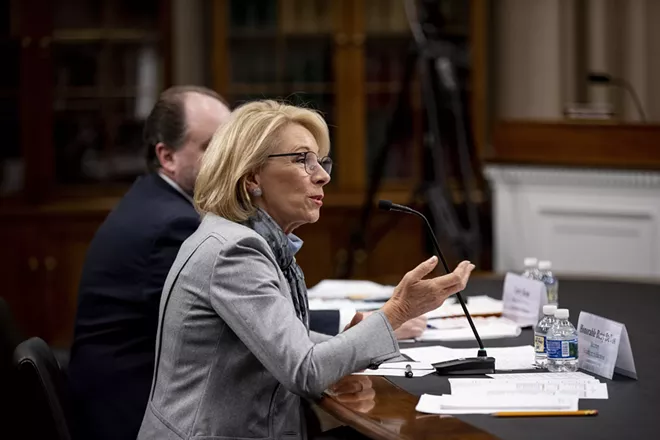
The New York Times Company
WASHINGTON — Education Secretary Betsy DeVos on Wednesday issued final rules for how public and private schools and colleges must address allegations of sexual misconduct, locking in protections for accused students and faculty but tempering earlier proposals that critics said would harm victims of assault and harassment.
The rules preserve DeVos’ broad goals in overhauling Title IX, the 48-year-old federal law that prohibits sex discrimination in programs that receive federal funding, by infusing legal standards in disciplinary proceedings that have been left largely to schools to navigate.
The new regulations narrow the definition of sexual harassment and require colleges to hold live hearings during which alleged victims and accused perpetrators can be cross-examined to challenge their credibility. The rules also limit the complaints that schools are obligated to investigate to only those filed through a formal process and brought to the attention of officials with the authority to take corrective action.
Schools will also be responsible for investigating only episodes said to have occurred within their programs and activities. To find a school legally culpable for mishandling allegations, they would have to be proven “deliberately indifferent” in carrying out mandates to provide support to victims and investigate complaints fairly.
The final rules, which take effect in August, codify for the first time sexual assault grievance proceedings that until now were covered by Education Department guidance and recommendations.
The Obama administration defined sexual harassment broadly and held schools liable for incidents they knew about or “reasonably should” have known about. The guidelines asked schools to adopt a “preponderance of evidence” standard in adjudicating cases and discouraged cross-examination and mediation between victims and accused students. Victims rights groups said that approach shepherded in a new era of accountability at colleges, putting schools on notice that Title IX did not only address equal access to sports teams.
When DeVos rescinded the Obama-era guidance in 2017, she said she acted, in part, to give new rules the force of law. But she also sided with conservatives and other critics who said the Obama guidelines favored accusers and gave little recourse to students accused of wrongdoing.
The rules are the most concrete and wide-reaching policy measure of DeVos’ tenure, but they are almost certain to be challenged.














